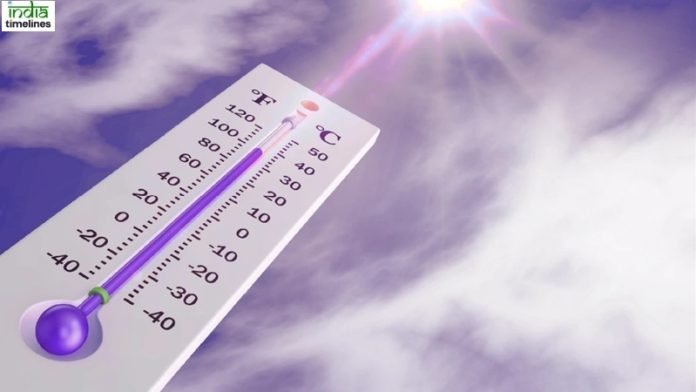
Summer’s high temperatures, humidity, and environmental irritants can make it challenging for those living with lung disease to breathe comfortably. Living with lung disease during the summer requires a mindful approach to managing symptoms, protecting respiratory health, and avoiding potential triggers. In this guide, we offer comprehensive strategies to help individuals with lung disease enjoy a healthier, more comfortable season.
Understanding the Impact of Summer on Lung Health
Summer weather presents unique challenges for those with chronic lung diseases such as COPD, asthma, and interstitial lung disease (ILD). High temperatures and humidity can strain the respiratory system, triggering breathlessness, fatigue, and exacerbations. Increased levels of air pollution, pollen, and ozone can further irritate the lungs, making it essential for individuals to take preventative steps.
Why Summer Can Be Challenging for Lung Disease Patients
Heat and Humidity Effects on Breathing
High temperatures and humidity can make the air feel heavier, making it harder to breathe. For people with lung diseases, this can lead to shortness of breath, which worsens with prolonged exposure to extreme weather. High humidity can also increase mucus production, contributing to airway inflammation and breathing difficulties.
Increased Levels of Air Pollutants
During the summer months, environmental pollution levels, including ozone and smog, typically rise due to increased sunlight and heat. These pollutants can irritate the lungs, leading to inflammation and worsening symptoms for those with lung disease. Urban areas may experience “ozone action days,” where air quality is particularly hazardous for sensitive groups.
Allergens and Respiratory Triggers
Pollen, mold spores, and other allergens are prevalent in summer, which can exacerbate respiratory symptoms, especially for those with asthma and chronic bronchitis. Being mindful of outdoor allergen counts and taking preventive measures can be essential to minimizing exposure.
Tips for Managing Lung Health in Summer
- Stay Informed About Air Quality
Keeping track of daily air quality levels can help those with lung disease avoid outdoor exposure during high-pollution periods.
- Use Air Quality Apps: Apps and websites, such as the EPA’s Air Quality Index (AQI), provide daily updates on air quality. Aim to stay indoors when air quality is moderate to poor (AQI 100+).
- Avoid Outdoor Activities During Peak Pollution Hours: Typically, pollution levels are highest in the mid-afternoon. Plan outdoor activities early in the morning or later in the evening.
- Hydrate Regularly
Staying well-hydrated helps keep mucus thin, making it easier to expel from the lungs. For those with lung disease, dehydration can lead to thickened mucus, which can obstruct airways and contribute to difficulty breathing.
- Drink Plenty of Water: Aim for at least eight glasses of water a day, but consult with a healthcare provider if you have fluid restrictions.
- Limit Caffeine and Alcohol: Both caffeine and alcohol can lead to dehydration, so reduce your intake during the hottest months.
- Create a Cool and Comfortable Environment
Staying indoors in a cool, air-conditioned environment can significantly reduce heat-related respiratory symptoms. Consider these strategies:
- Use Air Conditioning: Ensure air conditioning filters are clean, and avoid using fans that can circulate dust and allergens.
- Reduce Indoor Pollutants: Indoor pollutants such as smoke, candles, and harsh cleaning agents can irritate the lungs. Use eco-friendly cleaning products, avoid smoking indoors, and ventilate the home when using potentially irritating substances.
- Avoid Common Respiratory Triggers
People with lung disease are often more sensitive to irritants like pollen, mold, and even strong scents.
- Use an Air Purifier: A good-quality air purifier can help reduce allergens and pollutants indoors.
- Monitor Humidity Levels: Use a dehumidifier if indoor humidity rises above 50%, as high humidity can promote mold growth, which may exacerbate lung disease symptoms.
- Wear a Mask When Necessary: If you need to go outside on a high-pollution day, consider wearing a well-fitted mask to help filter airborne particles.
- Stay Active with Precautions
Regular exercise can benefit respiratory health, but during summer, exercise should be done with caution.
- Exercise Indoors: To avoid extreme heat, consider indoor activities like stretching, yoga, or using a stationary bike.
- Choose Early Morning or Late Evening for Outdoor Activities: The air tends to be cooler and pollution levels lower during these times, making it safer for physical activity.
- Consult Your Healthcare Provider Regularly
Before summer arrives, talk to your doctor about your respiratory management plan and ask about specific steps you should take in hot weather.
- Consider Adjusting Medications: Some people may need adjustments to their medications during the summer. For example, individuals with asthma may benefit from increased use of rescue inhalers on high-pollution days.
- Develop a Summer Action Plan: Work with your doctor to create a plan that includes what to do in case of a respiratory flare-up.
Emergency Measures: What to Do if Symptoms Worsen
In case of a breathing emergency, knowing what steps to take can be life-saving.
- Have Emergency Contacts Ready: Keep a list of emergency numbers, including family members, neighbors, and healthcare providers.
- Use Rescue Medications: If you experience shortness of breath, use your prescribed rescue inhaler or nebulizer.
- Know When to Seek Medical Help: Seek immediate help if you experience severe breathlessness, chest pain, or confusion. Call emergency services if symptoms do not improve after using rescue medication.
Recommended Lifestyle Changes for Better Lung Health
Living with lung disease requires long-term adjustments to daily habits, especially during summer. Here are some lifestyle practices that can help maintain and protect lung health:
- Eat a Lung-Friendly Diet: Incorporate antioxidant-rich foods like fruits, vegetables, and nuts to reduce inflammation. Omega-3 fatty acids, found in foods like salmon and flaxseeds, are particularly beneficial.
- Practice Deep Breathing Exercises: Breathing exercises can help strengthen the lungs, reduce stress, and improve oxygen intake. Techniques like pursed-lip breathing and diaphragmatic breathing are especially helpful for those with COPD and other lung conditions.
- Quit Smoking and Avoid Secondhand Smoke: Smoking is one of the most harmful things you can do to your lungs. Avoid places where you may be exposed to smoke or other harmful fumes.
Mental Health and Lung Disease: Managing Summer Anxiety
Managing a chronic lung condition can cause stress and anxiety, especially with the added discomfort of summer heat. Practice stress-relieving activities like meditation, gentle stretching, or speaking with a mental health counselor if you find summer exacerbates anxiety about breathing.
Prepare for Summer Travel with Lung Disease
Traveling with lung disease requires careful planning. Here are some key tips:
- Bring a Portable Nebulizer: A small, battery-operated nebulizer can be convenient and ensure you have access to medication wherever you are.
- Research Your Destination’s Air Quality: Check the air quality of your destination, especially if it has a hot and humid climate.
- Pack Extra Medications: Always bring more medication than you think you’ll need, in case of delays or extended stays.
Conclusion: Prioritize Respiratory Health This Summer
Managing lung disease during the summer may feel challenging, but with careful planning and lifestyle adjustments, it is possible to stay comfortable and maintain your quality of life. By staying informed about air quality, managing hydration, avoiding respiratory triggers, and working closely with your healthcare provider, you can protect your respiratory health throughout the season. Enjoy the summer while keeping your lungs safe and your symptoms under control.




























